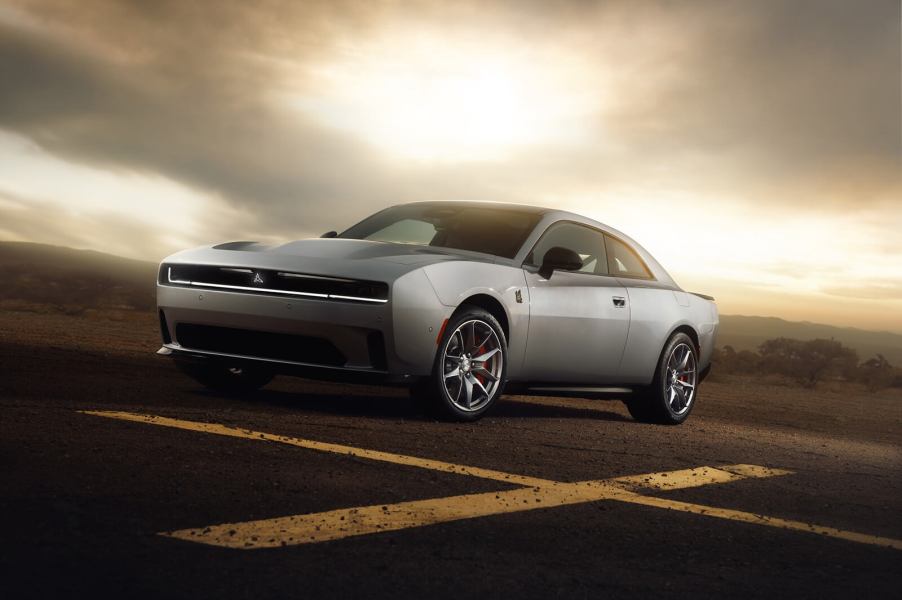
The 2024 Dodge Charger EV Outmuscles the Dead R/T Scat Pack
The 2024 Dodge Charger Daytona promises to bring the nameplate into the next generation. However, it’s more than high-voltage horsepower and a new look; it’s a step forward from the gas-powered LD-platform sedan it replaces. Better yet, the upcoming Dodge Charger EV will outmuscle its eight-cylinder predecessor, the 2023 Dodge Charger R/T Scat Pack.
The 2024 Dodge Charger Daytona EV will produce between 496 and 670 horsepower, more than the outgoing Scat Pack
Dodge CEO Tim Kuniskis unveiled the 2024 Dodge Charger Daytona EV in a CGI-heavy video unveiling. In the video, Kuniskis travels back in time to collect the Dodge Brothers, John Francis and Horace. Kuniskis then attempts to tell the Dodge Brothers about the march of progress and where Dodge’s brand of muscle-bound performance cars fits in.
Enter the 2024 Dodge Charger Daytona, an all-new take on the brand’s iconic muscle car nameplate. However, rather than packing a 6.4L HEMI V8 like the outgoing R/T Scat Pack, the Daytona rides on a 400-volt EV platform. That might seem a letdown for the Mopar faithful, but both Dodge Charger EV trims will outmuscle the R/T Scat Pack even without the bassy report of a HEMI V8.

| Model | Engine/ EV Platform | Horsepower |
|---|---|---|
| 2023 Dodge Charger R/T Scat Pack | NA 6.4L V8 | 485 horsepower |
| 2024 Dodge Charger Daytona R/T | 400-volt dual-motor | 496 horsepower |
| 2024 Dodge Charger Daytona Scat Pack | 400-volt dual-motor | 670 horsepower |
However, even with higher horsepower figures, Dodge quotes a slower 0 to 60 mph time for the Daytona R/T compared to the R/T Scat Pack and its HEMI V8. Specifically, the brand says the lower-trim 2024 Dodge Charger Daytona R/T will hit 60 mph in 4.7 seconds, over half a second behind the 485-horsepower R/T Scat Pack sedan.
On the other hand, the much more powerful Daytona Scat Pack EV will outrun its predecessor by a considerable margin. The 670-horsepower, all-wheel drive (AWD) Daytona Scat Pack will reportedly hit 60 mph in just 3.3 seconds, about as quick as a Tesla Model 3 Performance.





